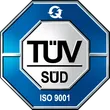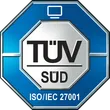Software development
Custom software for all systems and scenarios, developed in-house
What is software?
Software is the immaterial counterpart to hardware. It consists of a set of instructions and makes it possible to interact with computer systems. Software can have a user interface (UI) for users or work exclusively in the background. The application scenarios are limitless and range from the timer that stops the toaster to the database management system, enterprise resource planning (ERP) or machine learning framework.
What is software development?
Software development is the process of planning, designing, programming, testing and maintaining software applications. Experts from different areas such as software architecture, frontend and backend development come together to create user-friendly and powerful solutions.
Our Offer
Software development
Optimized business processes, improved productivity and maximum security with custom-made individual software
Database development
Customized databases with optimized application interfaces for efficient data management and process execution
Mobile and web app
Using native apps for iOS, Android, Windows, Linux, progressive web apps, we make information and processes available where they are needed.
Groupware
Increase collaboration and team productivity with user-friendly groupware solutions
Automation
With the help of automation scripts, a variety of recurring, tedious tasks can be pushed into the background, saving resources and reducing error-proneness
API development
Using incoming and outgoing interfaces (e.g. RESTful, SOAP, GraphQL), we connect systems and get the most out of every data set and process
Custom-made software
Custom-made software vs. standard software
Custom-made software is an application tailored to the specific needs of a company or client. It is individually planned and developed, allowing unique requirements to be fulfilled in a lean, performant, and highly secure manner. In contrast, standard software is a pre-made "one-size-fits-all" solution that is readily available, but only approximates the actual challenges.
Advantages of custom-made software
1
Tailored functionality Standard software is often overloaded with features that are only used by a few to appeal to the largest possible target audience. This makes the application sluggish, reduces usability, complicates further development, and poses security issues. Custom-made software focuses on a few functions but optimizes them in depth
2
Cost savings Custom software often requires a higher initial investment. However, the costs quickly amortize because there are no further license fees or subscriptions. In addition, custom solutions help to increase productivity.
3
Data security and GDPR compliance With custom software, we can ensure that (personal) data is only collected and processed to the desired extent. In addition, access to the actual data is restricted to a minimum group of people with access rights.
4
Access to the source code No backdoors, no hidden data transfer, and full customization freedom. Custom software is transparent and offers complete and unencrypted access to the entire source code. This allows independent third parties to always be convinced of the quality and security.
5
Collaborative development process The development process is carried out in close collaboration with all stakeholders and takes into account all experiences to continuously optimize the product.
6
Competitive advantage Tailor-made solutions can fully capture and solve individual problems, which contributes to a positive productivity advantage over competitors.
Our software development process
Step 1: Inquiry
Initial meeting and introduction
In the first meeting, the contracting parties introduce themselves and discuss the feasibility of the project. This consultation is free and non-binding.
Requirement analysis and offer
In this step, the requirements for the software are determined. Here, the functions and properties of the software are also defined. This is followed by a written offer.
Step 2: Concept and Development
Concept and planning
Once the order has been placed, we set up a shared Scrum working environment. In this phase, the project flow is planned, a roadmap is created, and a technical concept is developed. We prepare everything to implement the project quickly.
Technical and Graphic Implementation
The development process starts with the graphic design of the application interface. Depending on the project, the technical development process either begins after acceptance or already in parallel. The application progress is presented approximately every 14 days. The source code and Scrum board are always visible.
Testing and Training
At the end of the development phase, various automated and manual tests are performed by users. With several correction loops, the final errors are found and the application is made operational.
Acceptance and Deployment
With acceptance, the software is transferred, installed, and configured in the production environment. We ensure that it functions correctly and is ready for use.
Step 3: Maintenance and Support
Training
Depending on the needs, training and training materials are provided to users to ensure that they can use the software effectively.
Maintenance and Support
After commissioning the application, we agree on a monthly number of hours for ongoing support and further development. In addition, we include the application in our monitoring to be able to take action quickly in the event of failures.
Open source software
What is open source software ?
Open source software refers to software whose source code has been made freely accessible to the public. Usage is often not restricted by licenses.
How do we use of;use open;use open; source software ?
In the context of our development, we source frameworks such as Laravel, .NET, or React, databases such as MySQL, and other technologies as starting points . This allows us to benefit from the progress driven by the community while remaining completely free in the design, development, and our software .
FAQs
What kind of software does TenMedia develop? keyboard_arrow_down keyboard_arrow_up
We specialize in the development of custom software solutions. We do not focus on any specific industry. We offer full-service software development services, including analysis, design, development, quality assurance, support, and maintenance.
Which programming languages and technologies do you support? keyboard_arrow_down keyboard_arrow_up
Over our more than 10 years of development experience, we have worked with a wide variety of programming languages and technologies, including PHP, Java, Python, Ruby, .NET, React, Angular, and more. The selection of the tech stack is always made individually and project-specific.
How long does it take to complete a software project? keyboard_arrow_down keyboard_arrow_up
The duration of a software project depends on many factors, such as the scope of the project, project requirements, complexity of the technology, and availability of resources. Additionally, an extensive testing and implementation phase should be planned. A good benchmark is about 6 months for regular applications.
What does the collaboration look like? keyboard_arrow_down keyboard_arrow_up
The planning and development process is fully transparent. We set up a joint Scrum board. In this board, the entire project is broken down into individual tasks. We plan the tasks in two-week iterations and present them using MS Teams or on-site. Each task status (Todo, In Progress, Done) can be viewed at any time. The source code is versioned via GIT and is also continuously accessible without encryption. The current state of the application can be accessed via a test server. Moreover, all project parties get to know each other personally since we work exclusively in-house.
What kind of support and maintenance do you offer after development? keyboard_arrow_down keyboard_arrow_up
We offer maintenance contracts with predefined hourly contingents, which can be used for ongoing development, training, and support. Furthermore, we keep applications in our monitoring to proactively address any issues at any time.
How is software quality ensured? keyboard_arrow_down keyboard_arrow_up
As an ISO-9001-certified company, we rely on predefined processes to ensure the stability and security of applications. The key to development success lies in team composition. We work exclusively in-house with a well-coordinated and experienced development team. Another building block is "Test-Driven Development," which means automated tests that thoroughly examine essential parts of the application at the push of a button. Additionally, we conduct intensive and regular manual user tests.
What types of companies does TenMedia typically work with? keyboard_arrow_down keyboard_arrow_up
We work with companies of all sizes and industries, from start-ups to established businesses. In addition, we work very intensively with public institutions, foundations, and authorities.

